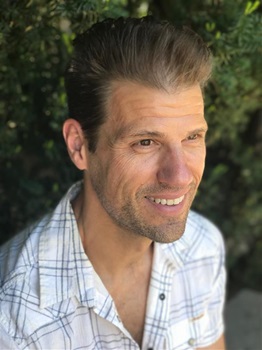Physical Performance Laboratory at the Marcus Institute for Brain Health
 Lab Mission
Lab Mission
The Physical Performance Laboratory at the Marcus Institute for Brain Health overarching aim is to initiate paradigm shifts in clinical care operations and policies for persons with neurological conditions (e.g., traumatic brain injury, neurodegeneration) by augmenting diagnostic and treatment clinical decision-making through confirmation and discoveries of unique physiological and neurobiological mechanisms and effective precision-based therapies.
Collaborations and Tools
The lab is located within Marcus Institute for Brain Health at the Anschutz Health and Wellness Center on the University of Colorado Anschutz Medical Campus, under the direction of Jeffrey R. Hebert, PhD, PT. The lab highlights transdisciplinary and interdisciplinary research efforts to build and test innovative theoretical frameworks, including: researchers and laboratories on the Anschutz Medical Campus in the departments of Physical Medicine & Rehabilitation, Neurology (e.g., Behavioral Neurology, University of Colorado Neuro-Magnetic Laboratories, Neuroimmunology), Ophthalmology, Radiology (e.g. University of Colorado Research Imaging Center), and Otolaryngology; the Ann and H.J. Smead Aerospace Engineering Sciences – College of Engineering and Applied Science – Bioastronautics Laboratory on the University of Colorado-Boulder Campus; and various technology industry scientific collaborators.
The Physical Performance Laboratory is an 800 sq. ft. lab with ample space to conduct multiple research activities. The lab contains state-of-the-art computerized dynamic posturography technology including one force plate platform system, the Neurocom SMART Balance Master® - Balance Manager® Neurocom International, Inc., a division of Natus, and two Proprio 5000® motion capture platform system - PROPRIO® Reactive Balance Systems, Perry Dynamics). The lab also houses vision screening and therapy instruments, medical examination tables, and exercise testing equipment (e.g., heartrate monitors, treadmill, stationary bicycles).
Work We Do
The Physical Performance Laboratory at the Marcus Institute for Brain Health operates in experimental and applied scientific arenas. A main emphasis of the lab is to investigate chronically persistent symptoms from a mechanistic perspective, with a focus on post-brain injury (e.g. mild to moderate traumatic brain injury) physical and psychological sequelae. Elucidating etiological indices such as multisensory (e.g. vestibular, ocular, auditory) integration and management dysfunction and brain function metrics as novel pathobiological underpinnings is at the forefront of the lab’s objectives. Based on the theoretical frameworks from the lab’s basic science efforts, the lab also investigates pioneering treatment approaches including multifaceted vestibular-vision and interdisciplinary rehabilitation, and the application of technology (e.g. wearable galvanic vestibular stimulation) as performance enhancing therapies.